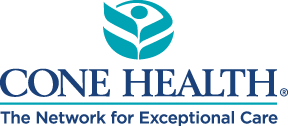





RCID does make appointments for testing and treatment for sexually transmitted diseases.
Through the generous support of the Cone Foundation, RCID is able to provide testing, treatment and PrEP free of charge to patients who qualify based on financial need. Patients with insurance will be filed at time of service.
Call 336 - 832 - 7840 to make an appointment
Sexually transmitted diseases (STDs) are passed from one person to another through intimate physical contact – such as heavy petting – and from sexual activity including vaginal, oral, and anal sex. STDs are very common. In fact, CDC estimates 20 million new infections occur every year in the United States. STDs can mostly be prevented by not having sex. If you do have sex, you can lower your risk by using condoms and being in a sexual relationship with a partner who does not have an STD. STDs do not always cause symptoms, so it is possible to have an infection and not know it. That is why it is important to get tested if you are having sex. If you are diagnosed with an STD, know that all can be treated with medicine and some can be cured entirely.
There are dozens of STDs. Some STDs, such as syphilis, gonorrhea, genital herpes, and chlamydia, are spread mainly by sexual contact. Other diseases, including Zika and Ebola, can be spread sexually but are more often spread through ways other than sex.
People who have STDs are more likely to get HIV, when compared to people who do not have STDs
Did you know taking 1 pill a day
can reduce your
risk of getting HIV by 90%
Learn more about PrEP and how you may qualify for receiving it for free here at RCID
Are some STDs associated with HIV? - Yes. In the United States, people who get syphilis, gonorrhea, and herpes often also have HIV, or are more likely to get HIV in the future
Why does having an STD put me more at risk for getting HIV? - If you get an STD you are more likely to get HIV than someone who is STD-free. This is because the same behaviors and circumstances that may put you at risk for getting an STD can also put you at greater risk for getting HIV. In addition, having a sore or break in the skin from an STD may allow HIV to more easily enter your body
What activities can put me at risk for both STDs and HIV?
-
Having anal, vaginal, or oral sex without a condom;
-
Having multiple sex partners;
-
Having anonymous sex partners;
-
Having sex while under the influence of drugs or alcohol can lower inhibitions and result in greater sexual risk-taking+
RCID does make appointments for testing and treatment for sexually transmitted diseases. Through the generous support of the Cone Foundation, RCID is able to provide testing, treatment and PrEP free of charge to patients who qualify based on financial need. Patients with insurance will be filed at time of service.
Call 336 - 832 - 7840 to make an appointment
Below are a few area locations where you can get tested.
Piedmont Health Services and Sickle Cell Agency
1102 E Market St, Greensboro, NC 27401
Guilford County Health Department
1100 E Wendover Ave, Greensboro NC 27401
801 Summit Ave, Greensboro NC 27405
1101 Carolina St, Greensboro NC 27401
NIA Community Action Center - Self Help Building
122 N Elm St, Greensboro, NC 27401
Planned Parenthood South Atlantic Greensboro Health Center
1704 Battleground Ave, Greensboro NC 27408








